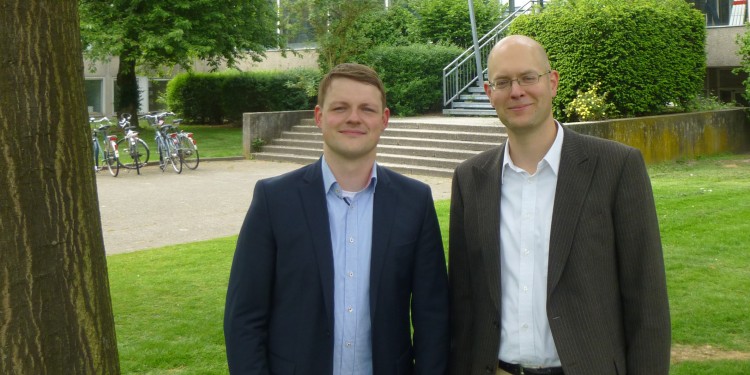
Chemists receive Awards
The fact that two chemists from Münster receive awards from the International Precious Metals Institute (IPMI) is very special as generally most of the awards go to researchers working in the US. However, in 2017, the University of Münster will receive two awards at the same time: Prof. Frank Glorius, from the Organic Chemistry Institute, will receive the Faculty Advisor Award endowed with 5.000 $. His PhD-student Johannes Ernst will be awarded a Student Award, which is endowed with 20.000 $. In June, both awardees will be honored in Florida, USA.
Frank Glorius will be awarded for his dedicated supervision of students and young scientists. He wants to inspire people to be interested and passionate about chemical research. He has a very close and intense interaction with his co-workers and provides excellent research conditions. At the same time, his co-workers have the freedom to decide which topic they want to work on. The scientific, cultural and personal interaction his co-workers within his international group is also very important for Frank Glorius. This should allow the scientific offspring to become successful and responsible researchers.
The IPMI honors Johannes Ernst for his outstanding research about transition metal catalysts. Catalysts are molecules that accelerate or allow certain steps within a reaction. Transition metals, for example gold, platinum and palladium, are applied as catalysts because of their unique characteristics. Johannes Ernst utilizes organic molecules, N-heterocyclic carbenes, to improve the performance of transition metal catalysts. For example, by binding of an organic molecule to a catalyst the outcome of a chemical reaction can be tuned. Furthermore, the properties of the product can be improved by this kind of binding.
The IPMI was founded in 1976 by several professors from renowned American universities. The goal of the institute is the collection and publication of various kinds of information about transition metals.
